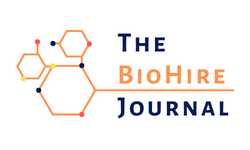An examination of the evolving state of interviewing within the biotech industry of 2024.
Like so many other aspects of the biotech industry, talent acquisition within the field has undergone a transformation in the last few years. With the pandemic-driven rise in remote work, interviews have also become increasingly virtual, a major change compared to pre-pandemic practices.
While there are certainly advantages to conducting interviews virtually – access to a wider breadth of candidates, time and money saved, and increased flexibility – there are also important drawbacks to consider, from the potential of technological issues causing disruption, to the difficulty of gauging a candidate’s fit within the culture of the office. Especially for such tactile, often lab-based work as biotech, it’s crucial to ensure candidates are assessed from various different angles, and many have voiced the importance of maintaining an in-person interview component as part of this process.
In this ever-changing world of biotech hiring, which methods of assessment do talent acquisition leaders feel remain necessary, and which are becoming obsolete? We spoke to a number of seasoned talent acquisition professionals in the industry to find out their thoughts on the interview process today.
Experts Agree: In-Person Interviewing Remains a Crucial Tool in Biotech Hiring
On a scale from “still very important” to “not used at all”, 70% of those interviewed felt that in-person interviews were still very important, both within their companies and in the biotech industry as a whole. However, this sentiment changes somewhat at companies with most employees working remotely.
“At CSSi LifeSciences, in-person interviewing is not used at all,” says Ernesto Chanona, Vice President of Business Development and Government Affairs at CSSi Life Sciences. “We are a completely virtual company, and the majority of our interviews are conducted online. Given our structure, the need for in-person interviews simply doesn’t align with our workflow.”
The Covid-19 pandemic and resultant quarantine provided a period of immense growth in opportunities for remote work, and this increase has continued in the subsequent years. NCCI reports that,
“From 2009 to 2019, the workforce moved only from 4% to 6% full-time remote workers”. That number is predicted to continue to rise post-pandemic, with an estimated 22% fully remote workers by 2025 (Upwork).
As companies continue to move towards a fully remote approach, they may find less of a need to assess in-person fit in candidates.
Many companies, however, are simultaneously pushing for a return to the in-person workforce of pre-pandemic days. Especially within the biotech industry, where much of the research and development is done on-site by necessity, productive office dynamics are often critical to the success of the work. In these cases, many cite the importance of meeting candidates face to face before they’re hired. “It’s crucial not only for the hiring team to assess the candidate they’ll closely collaborate with, but also for creating a strong sense of engagement for the candidate,” says Michael Chen, Director of Human Resources and Head of US HR at Genscript.
The best strategy, then, may be some combination of virtual and in-person interviews. Nancy Rose, Human Resources Director at DiscGenics, has found this to be an effective approach: “We do a series of interviews including phone, on-site, and Zoom, and find we get a much better fill using all of these.”
Is Behavioral Interviewing Worth the Effort?
Within such a specialized industry as biotech, it’s especially crucial to evaluate candidates from a variety of angles, and to accurately assess their competency at the myriad skills required for each role.
Behavioral interviewing, a tactic rooted in the psychology of using past behavior to predict present performance, is one method of such evaluation. But how commonly is behavioral interviewing actually used in biotech, and do talent acquisition leaders find it effective in selecting successful candidates?
Rose believes that a variety of interview types are needed to assess candidates for biotech positions.
“I don’t think that the colleges and universities provide enough education to bridge the gap between education and industry,” she says. “I think being able to do behavioral as well as skill questions is important to ensure people are a good value add to the company.”
Not only do behavioral questions help hiring teams assess competency at required skills, but they provide insight into whether a candidate’s interpersonal style will mesh well with the existing team. Chanona highlights another way in which behavioral interviewing can be used: “It’s a great way to differentiate between highly competitive applicants and make more informed decisions about who advances to the next round.”
Beyond the Interview
How important are the factors outside the sit-down interview? Most talent acquisition professionals interviewed felt that the need for additional tools, such as presentations, depends highly on the nature of the role.
“For positions that involve frequent client or customer interaction, like Business Development or Sales, presentation and pitch skills are essential, and presentations are a critical part of the process,” says Chen. Rose agrees, adding that “It may help to know how they can disseminate information if that’s part of that particular position”, though she stipulates that DiscGenics does not often use presentations in their interview process.
There may be an increased necessity for presentations to assess specific skills for more highly specialized roles, as commented Chanona. CSSi Life Sciences does not require presentations for business development positions, he says, but may ask for them when interviewing consultants.
Background checks, another common aspect of the talent acquisition process, remain a standard ask for most roles. However, their influence in the hiring decision varies from company to company. At Genscript, background checks are a very important part of the hiring process, “…especially for roles with high ethical standards or compliance requirements,” added Chen. For Rose at DiscGenics, however, “…they’re just a piece of the puzzle, they’re not any more important than any other factor”, and are often conducted post-offer.
The Interview Process Today: Changed for the Better?
Since pandemic restrictions eased, there’s been a push to return to the post-Covid norm of face-to-face interviewing and all that this entails.
Immediately post-pandemic, only 17% of final interviews were conducted in-person, an enormous decrease from 94% pre-Covid. As of 2023, though, this percentage has risen significantly to 64% (StandOut CV). Candidates also much prefer in-person interviews to virtual, with 70% expressing this opinion in a recent study conducted by The Harris Poll.
This may be for good reason – in-person interviews often provide a more nuanced assessment of candidates, and result in a better fit for both employers and employees.
Chen echoes this sentiment: “The rise of new technologies and remote work has made the resume screening and pre-screening processes much more efficient. However, this cannot fully replace key steps like face-to-face engagement.” While it seems clear that the fully in-person screening and interview process is a thing of the past, perhaps the industry is moving towards a more balanced method of assessment, comprised of various different elements, which will allow for a more well-rounded view of potential candidates and therefore better-informed hiring decisions.
Sources
- https://www.intervue.io/blog/understanding-virtual-interviews-meaning-importance-and-best-practices
- https://withe.co/blog/job-interview-statistics
- https://www.indeed.com/hire/c/info/virtual-vs-in-person-interviews-pros-cons
- https://www.recruiter.com/recruiting/survey-reveals-evolving-opinions-about-virtual-interviewing-technology/
- https://www.uscareerinstitute.edu/blog/50-eye-opening-remote-work-statistics-for-2024
- https://www.ncci.com/SecureDocuments/QEB/QEB_Q4_2020_RemoteWork.html
- https://www.upwork.com/press/releases/upwork-study-finds-22-of-american-workforce-will-be-remote-by-2025#:~:text=By%202025%2C%2036.2%20million%20Americans%20will%20be%20remote%2C%20an%20increase%20of%2016.8%20million%20people%20from%20pre%2Dpandemic%20rates
- https://www.forbes.com/sites/joemckendrick/2022/08/13/spurred-by-remote-work-all-virtual-companies-thrive/
- https://www.indeed.com/hire/c/info/virtual-vs-in-person-interviews-pros-cons
- https://www.uschamber.com/co/run/human-resources/behavioral-interviewing
- https://www.science.org/content/article/first-encounters-behavioral-interviewing
- https://americanstaffing.net/posts/2023/02/16/in-person-job-interviews-vs-virtual/
- https://standout-cv.com/usa/job-interview-statistics-us#:~:text=Pre%2Dpandemic%2094%25%20of%20final,risen%20to%2064%25%20in%202023.
- https://americanstaffing.net/posts/2023/02/16/in-person-job-interviews-vs-virtual/








